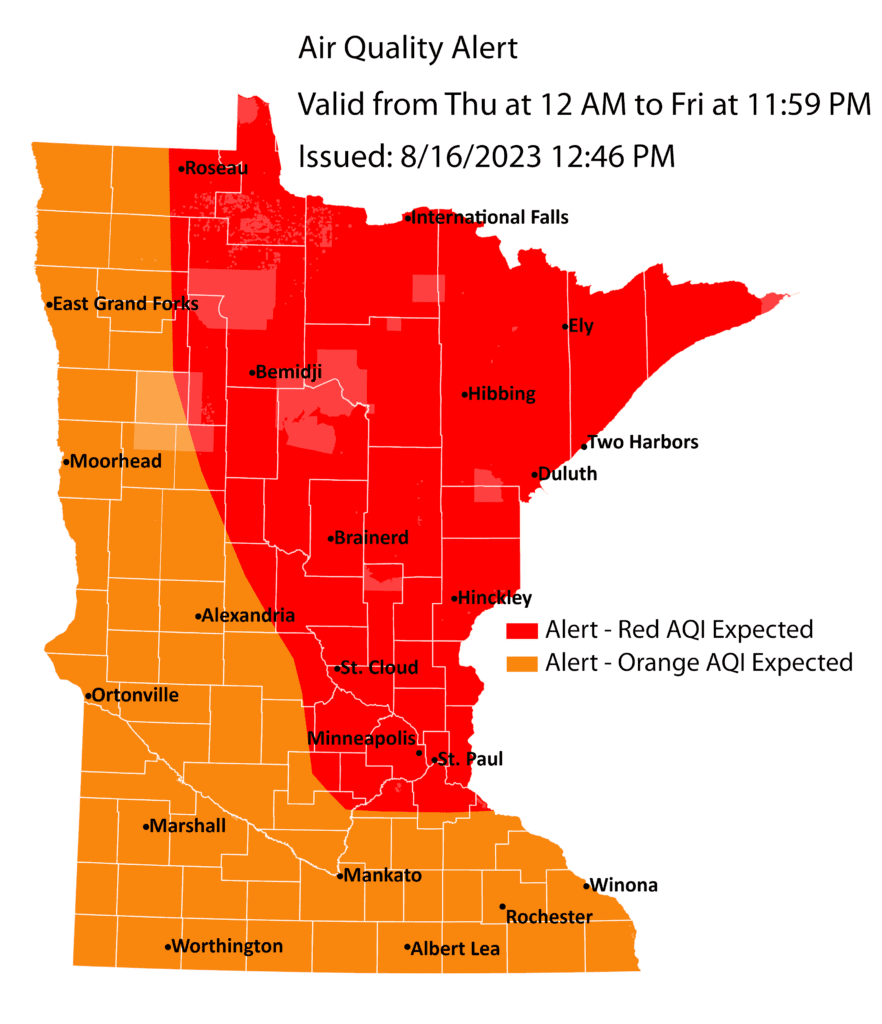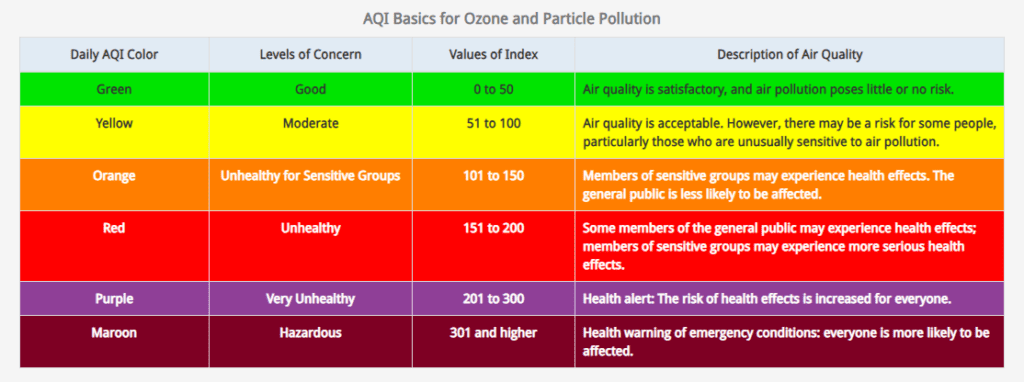Air Quality Alert for Minnesota and Wisconsin
The Minnesota Pollution Control Agency (MPCA) and the Wisconsin DNR have have issued air quality alerts across both states for Thursday and Friday. The alert in Minnesota takes effect at midnight on Thursday, Aug. 17, and runs until 11 p.m. on Friday, Aug. 18. In Wisconsin, the alert goes through 6 a.m. on Monday.

These alerts have been sent out due to the heavy ground-level smoke from wildfires in the Northwest Territories of Canada. This smoke is moving south across central Canada and heads towards Minnesota and Wisconsin. The smoke will be heavy and air quality may reach the Red (Unhealthy) AQI category for much of Eastern Minnesota and Western Wisconsin.
During air quality alerts due to wildfires, the air is mixed with harmful smoke. Wildfire smoke spreads or lingers depending on the size of the fires, the wind, and the weather.

The air quality index (AQI) is color-coded. Air quality alerts are issued when the AQI is forecast to reach an unhealthy level, which includes forecasts in the orange, red, purple, and maroon categories. For a full description of each air quality category, visit airnow.gov.
This red air quality across most both both states is unhealthy for everyone. Anyone may begin to experience symptoms such as irritated eyes, nose, and throat, coughing, chest tightness, or shortness of breath. Sensitive or more exposed individuals may experience more serious health effects, including worsening of existing heart or lung disease and respiratory and cardiovascular conditions, possibly leading to an asthma attack, heart attack, or stroke.
Make sure you reduce outdoor physical activities, take more breaks, and avoid intense activities to reduce exposure. Sensitive and more exposed individuals should avoid prolonged or vigorous activities and consider shortening, rescheduling, or moving outdoor events inside.
Sensitive groups include:
- People who have asthma or other breathing conditions like chronic obstructive pulmonary disease (COPD)
- People who have heart disease, high blood pressure, or diabetes
- Pregnant people
- Children and older adults
People with increased exposure include:
- People of all ages who do longer or more vigorous physical activity outdoors
- People who work outdoors, especially workers who do heavy manual labor
- People who exercise or play sports outdoors, including children
- People who don’t have air conditioning and need to keep windows open to stay cool
- People in housing not tight enough to keep unhealthy air out, or who do not have permanent shelter.
Anyone experiencing health effects related to poor air quality should contact their health care provider. Those with severe symptoms, chest pain, trouble breathing, or who fear they may be experiencing a heart attack or stroke should call 911 immediately.
Visit the MPCA’s Air quality and health webpage for information about health and indoor and outdoor air quality and how to prevent air pollution.
Visit the Minnesota Department of Health wildfire smoke webpage for actions you can take to protect your health against wildfire smoke.